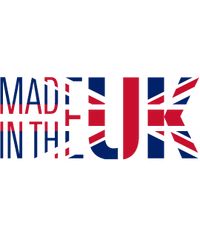Look great, although yet to wear as a spare, great communication throughout.
Avoid at all costs please! It's bulky, heavy and makes it impossible to wear at night!
I’ve worn snoring mouthpieces for most of my adult life. The Contour is the one that I keep going back to year after year. It has great flexibility of movement during sleep, especially for somebody who grinds their teeth. And offers lots of versatility in the strap lengths. Their customer service has always been fantastic anytime that I have reached out with questions. And shipping time to the United States has always been very quick usually only about a week.
Thank god for this company. I have an nhs mandibular device that the straps keep snapping on constantly and i have to make a hospital appointment every time to get it repaired. These straps are exactly the same and although it is costing me money to repair the device instead of free on the nhs it is saving me an exhausting night of little sleep, time off work and fuel to travel to an appointment at a hospital and i can repair the device myself. Ordered and came next day as well. Fantastic
Didnt seem to mold well, tried several times. At night wither because loose or obstructive. Unfortunately i have had cheaper products work more effectively/stay in place

